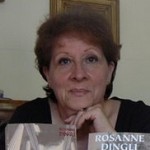Indie authors understand that being out there on one’s own means having to tackle all aspects of book writing, publishing, and promotion. It might seem daunting, it is certainly hard work, and a steep learning curve, but help is available.
Few participants in other industries help each other in the same way that authors pitch in for others like them. The huge helpings of camaraderie and assistance, advice and support, must be seen and felt to be believed.
It’s possible to learn enough in a year to be able to write a book and present it to one’s readers in a form that satisfies industry standards, simply because so much help is available.
Here are some points that one needs to know:
- Editors ain’t editors. There are many kinds of editors, and many levels of editing, which range from the strictly cosmetic – such as proofreading for obvious typos – to the intensive and constructive, such as developmental editing. Professional and experienced editors offer different levels, and make clear what you get with each.
- Category or genre fiction is easier to sell than general fiction or literary novels, and non-fiction sells much better than novels or collections of short stories. If an author has a qualification that lends weight to a factual book they could write, it provides a better way to make a name than a novel. Moving from there to fiction does not guarantee sales (nothing does) but it beats coming in from the cold.
- Understanding Amazon and how it works makes a lot of sense. Just because it is big and seems to hold a monopoly over book selling, Amazon is not the scary juggernaut some think it is. It’s where most readers go to seek books, whether or not they purchase them there, so it’s the place for your books to be. Being discoverable is one of the vital aspects of being an indie author.
Lemon tree - Cover design is important, and even if you decide to do it yourself, it makes sense to learn as much as possible about it. Teaching oneself skills is the mainstay of the indie author, so look at as many covers as you can in your genre, and figure out why the bestselling ones work. What makes them good? Learn about typography and graphic art to find out.
- It can cost nothing but time to publish your books, they say. There are a few costs, though, that are inevitable, such as paying for wider distribution on the Createspace program run by Amazon. One must also pay to see a physical proof for a paperback, and some non-USA residents sometimes pay fees to have cheques cashed. Whether or not you pay for editing or proofing is up to you and avoidable if you barter.
- Marketing and promotions are not two words for the same thing. Learning the difference is vital if you are to seek readers, find them, and entice them to buy your books. A bit of research in this area pays dividends.
Everything in life – including indie publishing – comes down to time or money. One can buy a seedling lemon tree and wait eleven years for lemons… that’s time. Or one can buy a mature tree, have it transported to your garden and planted, for instant lemons… that’s money. In publishing, it can feel like a struggle for lemons too, but there are ways around things, and plenty of people willing to advise, help, trade tasks, and barter.
When an author writes a helpful blog, shares knowledge, recommends a service or a method, or offers to swap proofreading of a manuscript, it’s sometimes more valuable than money.
* * * * *
 ROSANNE DINGLI owns a lemon tree. Her novels are available as paperbacks and eBooks everywhere good books are sold online. For more about this author, visit her blog and her website.
ROSANNE DINGLI owns a lemon tree. Her novels are available as paperbacks and eBooks everywhere good books are sold online. For more about this author, visit her blog and her website.
You may manage your subscription options from your profile.



I think of writing as more a profession in regards to helping each other. A business is unlikely to help it's competitors, a professional helps to maintain the value of the profession.
The interesting thing to me is that books are a different kind of product. If you look at car sales, the competition comes from the fact that me buying a Toyota means I won't buy a Ford too. Only one sale is available. With books, buying one of my books is just as likely to entice you to buy another author's product in the same genre.
Great post
Excellent post! Thanks for sharing your expertise with us, Rosanne.
I wanted to take a moment to clarify about CreateSpace. They no longer require authors to pay for advanced distribution. Partway through last year, they began offering that service to everyone for free. Also, you are not required to purchase a physical proof from them, although they do recommend it. They have an online tool that allows you to see what your book will look like without (or before) ordering the proof.
It is a business, but just as businesses do help each other, though we might not know it, we as authors should help each other out too. I used to work for a company called Maytag, Hubby drove for them. He delivered parts from Maytag to Whirlpool and from Whirlpool to Maytag and even to Amana. Back then Whirlpool and Maytag were competitors. Other companies do the same, parts go to all companies, I bought a Bissell at Wal-mart, same thing can be bought at K-mart, Menards, vacuum cleaner shops and mom and pop stores. Same thing. Everyone is helping everyone be in business.
Rosanne that was a very positive post. I'd add to it that working to get your book just right is a great escape route when the rest of the world is crowding in on you. After bringing out a new book a couple of months ago, have only just got around to doing some necessary promotions: just simple things like emailing the embassy and information office of the country which forms the main background (Finland) of its existence. Just doing that made me feel a whole heap better, and started the insidious thought that it might be time to be thinking about the next book!
Great post! I always tell other Indie authors that I offer advice for free. Anything else, and you're looking at $, simply because my time is money too. I have covers to design, books to format, writing, editing, publishing, and on top of all that–farming as well. But it makes me feel good to give advice and see the author use it and benefit from it.
Love your post. Great stuff and the lemon tree analogy is awesome.
Thanks to Jim, Sylvie, Wendy, S.L.,and PA for such attention to detail and such praise! This is what I mean about writers coming in to contribute to the action.
Where would we be without each other's support?
Great point about Amazon not being all evil. It wouldn't be the monopoly if it didn't provide readers what they need, so you might as well be where the readers are!
Discoverability, I call it – be where your readers are.
Spot on, as usual, Rosanne. Thank you.